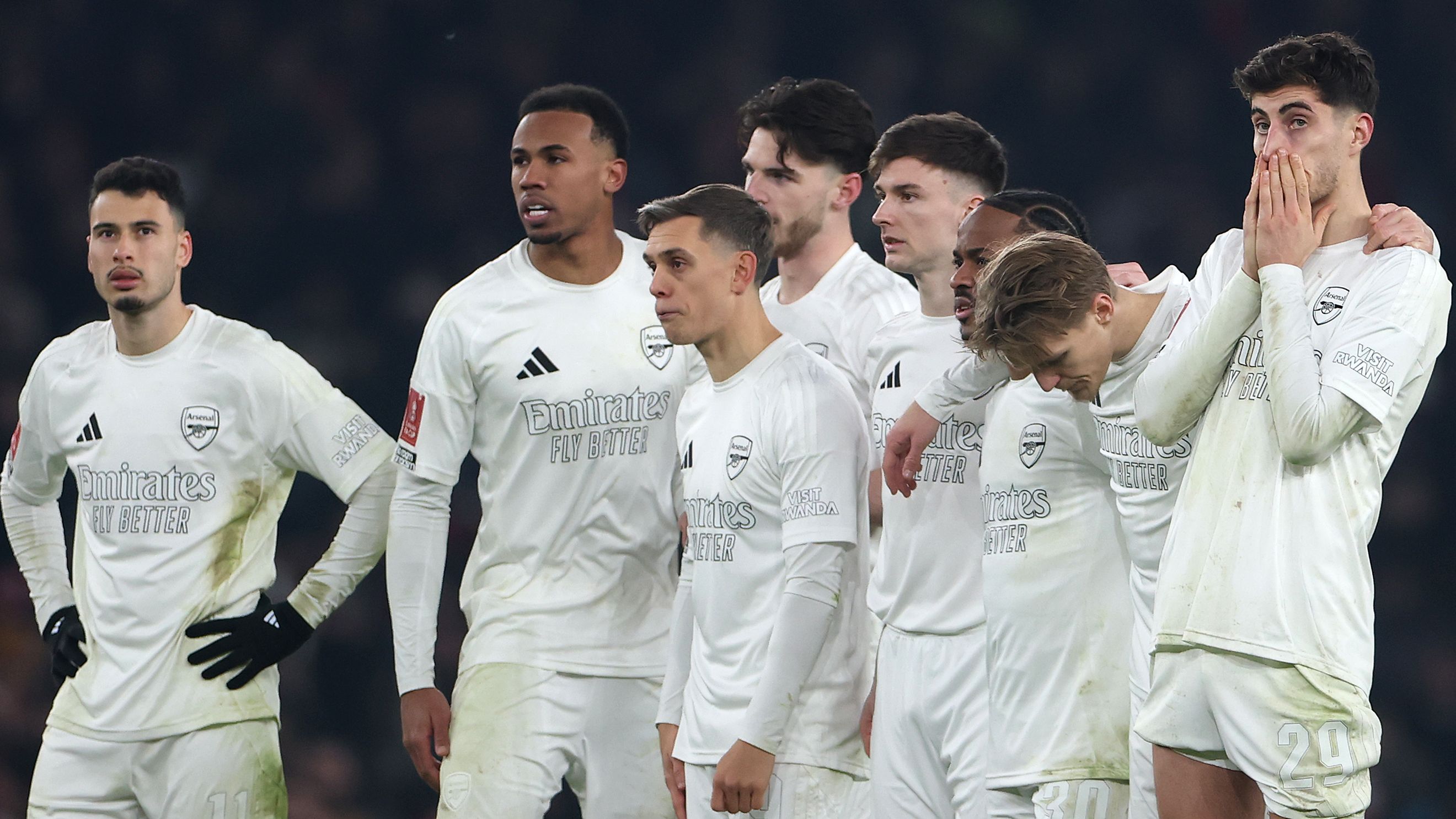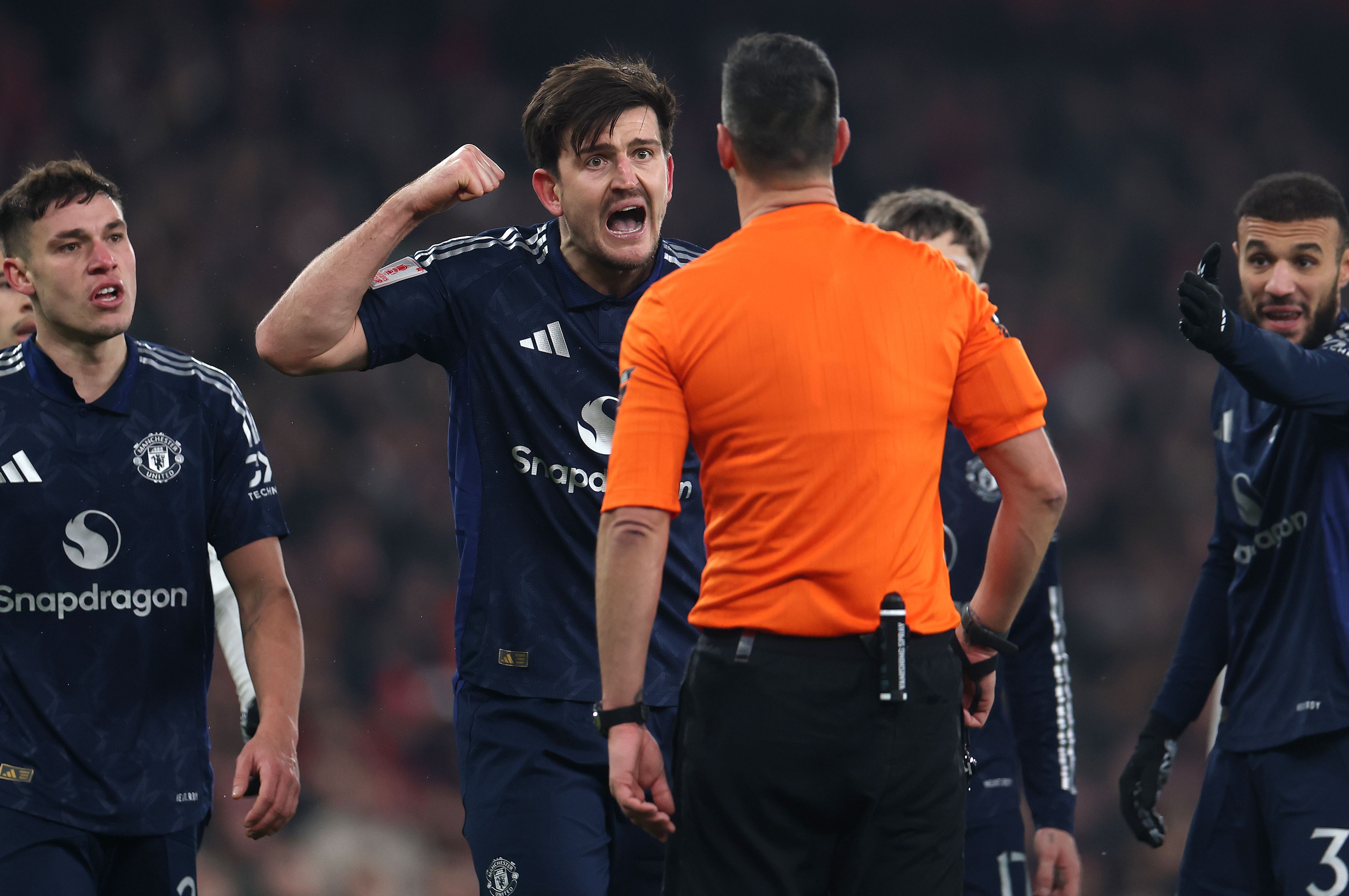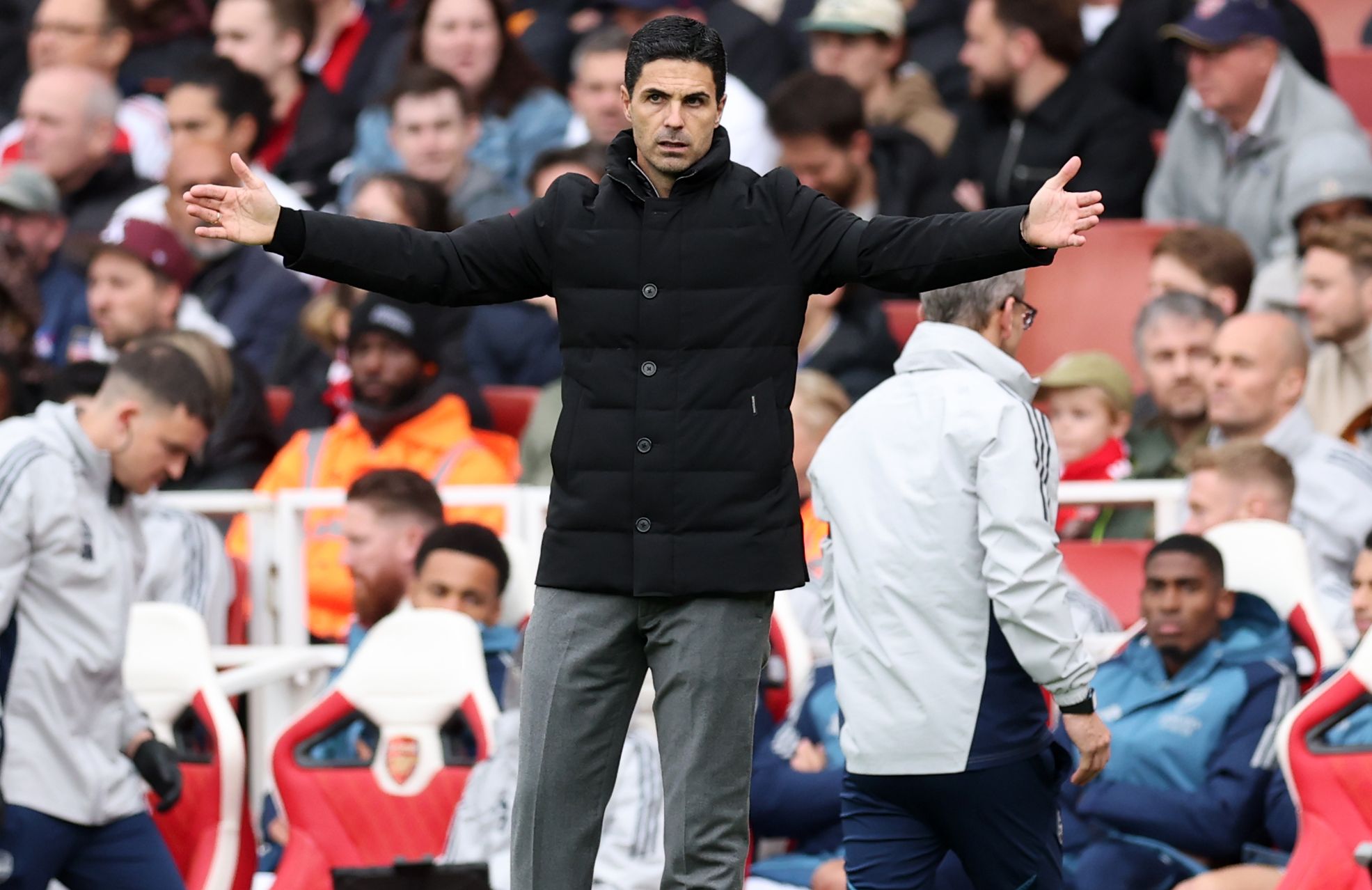


Unraveling the Chaos: Arsenal’s Battle with a Major FA Sanction Over Manchester United Clash
The football community is buzzing with astonishment as Arsenal grapples with a substantial FA fine linked to their fiery showdown with Manchester United in the FA Cup. This event spotlights persistent struggles in upholding supporter security and sticking to tournament guidelines, forcing the Gunners to steer through possible consequences that may reshape their campaign moving forward. Drawing parallels to other regulatory hurdles, it underscores how such oversights can reverberate across the sport.
Exploring Arsenal’s Ticketing Conflict and the Pending FA Sanction
Manchester United anticipated receiving 9,000 tickets for their matchup at the Emirates, but they only obtained 7,956 owing to concerns about safety cited by Arsenal. The team cited complications in hosting away fans in the upper areas due to existing standing issues. In the end, officials determined that Arsenal failed to comply with the necessary criteria, imposing a £500k fine that is currently deferred. This hold is conditional upon Arsenal verifying their commitment to ticketing procedures in the upcoming FA Cup stage and sustaining that level throughout the event.
Consequences for Upcoming Games and Supporter Distribution
This decision reveals the intricate balance in venue operations, where protecting attendees must align with providing access for followers. Arsenal is now compelled to review their methods to prevent future clashes, guaranteeing that visiting fans get their appropriate allocations while upholding essential protective protocols.
Capturing the Intense FA Cup Encounter Between Manchester United and Arsenal
For Manchester United enthusiasts who couldn’t make it, the occasion was a captivating display of tension and excitement. Manchester United ousted Arsenal from the tournament in a gripping third-round contest, securing a 5-3 win in the penalty shootout following a 1-1 stalemate that went into extra time. Manchester United took the lead early in the second half with a strike from Bruno Fernandes in the 52nd minute, however, their advantage waned when Diogo Dalot received a second yellow card for a foul, reducing them to ten players. Arsenal quickly capitalized, tying the game just two minutes later through Gabriel’s strike.
Standout Plays and Debated Decisions During the Game
The match’s energy intensified with a contentious penalty awarded to Arsenal after Harry Maguire fouled Kai Havertz, yet Altay Bayindir’s block on Martin Odegaard’s shot preserved the balance. Arsenal controlled the latter part of the game, creating numerous chances, including a crucial miss by Havertz at close range, but Bayindir’s exceptional performance kept Manchester United in the fight. In the critical shootout, Manchester United converted every attempt, with Joshua Zirkzee sealing the victory after Havertz’s blunder. This success advanced Manchester United to the fourth round, where they defeated Leicester City at home before being eliminated by Fulham on penalties in the fifth round.
Arsenal’s Ambitious Plan to Revamp the Emirates Stadium
Nearly 20 years after moving from Highbury in 2006, Arsenal is pursuing an extensive transformation of the Emirates Stadium. The plan aims to increase capacity from 60,700 to over 70,000 seats, making it the top club stadium in London compared to competitors like Tottenham and West Ham. Priced at £500 million ($664.2m), this project is intended to boost earnings from match days and address a season ticket waiting list exceeding 100,000 enthusiastic supporters.
Structural Hurdles and Possible Temporary Moves
An expert group is examining different configuration options, including altering stand angles and repositioning seats, with most changes fitting within the existing structure. However, the tight 17-acre site, bordered by residential areas and rail lines, creates significant logistical barriers and could extend approval processes for up to five years. Should construction commence, Arsenal may have to relocate their home fixtures temporarily, potentially to Wembley, similar to Tottenham’s approach during their stadium upgrade. While this initiative is expected to fortify the club’s financial stability and competitive standing, it could impact both the male and female teams, and no final decision has been made as evaluations continue.
Overview of the Upcoming FA Cup Third Round Selection
The FA Cup third round draw is scheduled shortly after the second round ends, expected around the weekend of December 6. This is when Premier League and Championship teams will enter, with the games set for mid-January, particularly the weekend of January 10 next year.
The Trigger: Unpacking the Causes Behind Arsenal’s FA Fine
Within English football, rivalries such as those between Arsenal and Manchester United can spiral out of control, frequently resulting in penalties imposed by the Football Association (FA). A prominent example is the FA imposing a fine on Arsenal following their intense FA Cup game against Manchester United, illustrating the value of preserving order on the field and the broader effects on the sport’s ecosystem.
The heart of the issue unfolded during the FA Cup match, with heightened emotions leading to player altercations involving rough plays, arguments, and poor sportsmanship that caught the FA’s eye. Arsenal faced repercussions that stressed the importance of enhanced player oversight and compliance with FA standards. Terms like “Arsenal fined by FA” and “Manchester United FA Cup dispute” emerged as popular in sports discussions, as audiences and experts questioned the ruling’s equity.
In context, these occurrences are not unusual and typically arise from the intense pressure of knockout tournaments, where a single match can alter a team’s path. Here, the FA examined player actions, including breaches of integrity guidelines, aimed at safeguarding the game’s safety and appeal for all participants.
Significant Occurrences and Player Roles
In the game, various pivotal moments played a role in the FA’s verdict. Arsenal players, for example, were charged with excessive challenges and not diffusing conflicts, sparking on-pitch brawls. Manchester United players reacted similarly, but the FA attributed greater responsibility to Arsenal based on the incidents’ details. This is a typical process in the sport, involving analysis of recordings and official reports to assign blame.
From a supporter’s viewpoint, it’s intriguing how these conflicts can extend beyond the pitch. An Arsenal backer might view the fine as unfair, whereas Manchester United followers could regard it as justified enforcement. Regardless, it serves as a lesson on how “FA Cup disputes” can shape team spirit and how the public perceives clubs.
FA’s Ruling: Analyzing the Penalty and Its Justification
The FA levied a fine on Arsenal based on their inquiry outcomes. The punishment was considerable, mirroring the gravity of violating behavioral norms in a prominent fixture. Cited reasons encompassed multiple violations, like inadequate player supervision and failure to halt escalating disputes, which form the backbone of the FA’s behavioral framework.
In their formal announcement, the FA noted that such fines act as warnings to promote fairness. For Arsenal, this involved not just monetary loss but also risks of point losses or cautions for subsequent breaches. This element of sport regulation demonstrates how the FA upholds standards, turning “Arsenal fined by FA” into a key phrase in conversations about competition fairness.
Economic and Oversight Effects
FA fines can vary from modest amounts to substantial sums in the hundreds of thousands of pounds, based on the offense’s severity. For Arsenal, the fine was tied to the event’s prominence and its potential damage to the game’s image. Oversight consequences included required sessions for players and personnel on conduct handling, a routine response in these scenarios.
This situation also highlighted the larger role of penalties in encouraging ethical practices in football. Clubs like Arsenal must consider the drawbacks of confrontational strategies against the advantages of victory, a vital equilibrium in elite leagues.
Effects on Arsenal: Key Takeaways from the Conflict
The fine significantly influenced Arsenal, touching on internal team interactions and relationships with fans. Following the event, the club implemented changes to training routines, emphasizing composure and fair play. This moment acted as a critical alert, aiding Arsenal in refining their tactics for forthcoming matches and steering clear of “Manchester United FA Cup dispute”-like situations.
Among fans, this led to dialogues about allegiance and how these incidents can either rally or fracture fan groups. Arsenal’s actions, including public statements of regret and self-assessments, helped rebuild some trust.
The Influence on Team Results
Initially, the fine could have disrupted focus, but it’s widely believed it brought lasting improvements. Arsenal’s players cited using this as drive, resulting in stronger discipline in later games. This is a frequent result in football, where sanctions encourage teams to evolve positively.
Advantages and Strategies to Prevent Future FA Penalties
A key benefit of notable fines like Arsenal’s is the educational value they provide to other teams. Advantages include greater understanding of FA guidelines, which can ward off future issues and cultivate a more courteous atmosphere on the field. For example, squads that emphasize psychological support for athletes often experience fewer conflicts during play.
Below are effective strategies to assist football organizations in avoiding FA sanctions:
- Focus on Player Training: Hold frequent seminars on FA policies and self-regulation to help athletes grasp the outcomes of their behavior.
- Improve Coaching Methods: Instructors should integrate situational drills that mimic stressful scenarios, enabling players to hone conflict resolution skills.
- Promote Transparent Dialogue: Facilitate group conversations about prior incidents to foster a setting of responsibility and development.
- Review Match Recordings: Utilize footage not only for strategy but to spot patterns of conduct that might trigger penalties.
- Strengthen Fan Connections: Develop deeper bonds between the club and supporters to convert negative reactions into constructive input, as demonstrated in Arsenal’s rebound.
Adopting these strategies can greatly minimize the chance of fines, making them indispensable for teams in competitive football.
Examples from Similar FA Cup Incidents and Their Resolutions
Examining comparable situations offers insight into Arsenal’s experience. In one FA Cup encounter, a top-tier team incurred a fine for spectator misbehavior, resulting in tougher venue rules. This illustration demonstrates how conflicts can shift from player-related matters to wider crowd issues.
In a newer case, another club received penalties for akin on-field actions, with fines suspended if specific conditions were fulfilled. These instances reveal trends in FA rulings, stressing the importance of consistent enforcement of “FA Cup disputes.”
Side-by-Side Review
Contrasting Arsenal’s scenario with others indicates that penalties often align with the game’s exposure. Teams in major events like the FA Cup encounter harsher measures, highlighting the necessity for caution.
Expert Perspectives: Lessons from Industry Professionals
Gleaning from accounts by football commentators and retired players, events like this can be transformative. A manager shared how their squad evaded a fine through pre-game talks on demeanor, which positively affected player actions. These real-life accounts emphasize the practical use of insights from occurrences such as the Arsenal-Manchester United clash.
To wrap up these narratives, the primary lesson is that taking initiative can convert potential setbacks into avenues for progress. Both fans and clubs gain from these insights, as they redefine our understanding of sports oversight.
[başvurmak:[başvurmak:[başvurmak:[başvurmak:https://arsenal.dk/gunticket-er-nu-aabent-2/]
[başvurmak:[başvurmak:[başvurmak:[başvurmak:https://arsenal.dk/billetbestilling-til-arsenals-hjemmekampe/]
[başvurmak:[başvurmak:[başvurmak:[başvurmak:https://arsenal.dk/]
Background of the Dispute
In the world of English football, tensions often run high, especially during high-stakes matches like those in the FA Cup. One notable incident involved Arsenal and Manchester United, where a heated on-field clash grabbed headlines and led to disciplinary action from the Football Association (FA). This dispute arose during an FA Cup quarter-final match, where players from both sides engaged in a series of confrontations, including shoving, verbal exchanges, and even a brief melee near the sidelines. For Arsenal fans and followers of Premier League drama, this event highlighted the intense rivalries that make FA Cup fixtures so captivating.
The root of the conflict stemmed from a controversial tackle by an Arsenal player on a Manchester United star, which many viewed as reckless. Referees stepped in, issuing yellow cards, but the fallout extended beyond the pitch. Social media buzzed with debates about fair play in the FA Cup, and pundits analyzed every angle of the incident. This wasn’t just another game; it was a prime example of how FA Cup disputes can escalate, drawing global attention to issues like player conduct and sportsmanship in professional football.
Key players involved included Arsenal’s defensive line, known for their aggressive style, and Manchester United’s attacking talents, who are often at the center of high-profile FA Cup battles. The incident underscored the importance of maintaining composure under pressure, a lesson that’s repeatedly emphasized in football analysis and FA guidelines.
What Triggered the FA Investigation
Following the match, the FA launched a thorough review of video footage and reports from officials. Their investigation focused on rule violations, such as unsporting behavior and failure to control emotions, which are common themes in FA Cup enforcement. Keywords like “FA fines for misconduct” and “Arsenal FA Cup dispute” started trending as fans sought updates on the proceedings. The FA’s swift action demonstrated their commitment to upholding the integrity of the competition, ensuring that such incidents don’t overshadow the excitement of the FA Cup.
Details of the FA Fine
The FA ultimately imposed a fine on Arsenal as a direct result of the dispute, amounting to a significant six-figure sum. This penalty was handed down for the club’s failure to prevent player misconduct, with the FA citing breaches of their standard regulations on player behavior. In football circles, fines like this are often seen as a deterrent, reminding teams that the FA Cup isn’t just about glory-it’s about adhering to the rules that keep the game fair and safe.
Arsenal’s fine included not only monetary repercussions but also a warning about potential points deductions in future competitions if similar issues arose. This move by the FA highlighted their zero-tolerance policy towards behaviors that could tarnish the reputation of the FA Cup. For those tracking “FA fines Arsenal” stories, this case served as a reminder of how quickly a single match can lead to lasting consequences in the Premier League ecosystem.
Breakdown of the Fine Structure
To break it down, the fine was structured around several factors: the severity of the on-field actions, the involvement of multiple players, and the potential risk to player safety. The FA often uses a tiered system for such penalties, where clubs are fined based on their history of similar offenses. In this instance, Arsenal’s fine was escalated due to prior warnings, making it a key talking point in discussions about FA Cup accountability.
Impact on the Teams and the FA Cup
The fine had ripple effects on both Arsenal and Manchester United, affecting team morale, fan relations, and even sponsorship deals. For Arsenal, it meant tightening internal training protocols to focus on emotional control, turning the incident into a learning opportunity. Manchester United, while not directly fined, saw their players rally around the event, using it as motivation for subsequent FA Cup runs. Overall, this dispute shed light on the broader implications of FA Cup conflicts, influencing how teams prepare for future matches.
In terms of the FA Cup itself, events like this reinforce the competition’s status as a pillar of English football. By penalizing misconduct, the FA helps maintain the tournament’s appeal, ensuring it remains a sought-after prize for Premier League clubs.
How This Affected Fan Engagement
Fans played a big role in the aftermath, with online forums buzzing about “Manchester United vs Arsenal FA Cup dispute.” Many supporters viewed the fine as a necessary step to protect the spirit of the game, leading to increased discussions on social media platforms. This engagement boosted visibility for related keywords, helping fans connect over shared experiences.
Benefits of FA Regulations
One positive outcome from this incident is the spotlight it shone on the benefits of FA regulations. These rules promote a safer, more respectful environment in football, encouraging players to prioritize skill over aggression. For instance, by enforcing fines, the FA discourages repeat offenses, fostering a culture of accountability that benefits everyone from young aspiring players to professional teams.
In practical terms, such regulations help streamline match operations, reducing the likelihood of delays or cancellations due to disputes. They also enhance the FA Cup’s global image, attracting sponsors and broadcasters who value a clean, competitive product.
Practical Tips for Teams and Players
If you’re a coach, player, or even a fan involved in football, here are some handy tips to avoid similar FA Cup pitfalls:
– Focus on mental training: Incorporate mindfulness sessions to help players manage emotions during high-pressure games.
– Review footage regularly: Teams should analyze match videos to identify potential misconduct early, preventing FA fines.
– Promote open communication: Encourage dialogue between rivals on the pitch to de-escalate tensions before they escalate.
– Stay updated on FA guidelines: Knowing the latest rules around player conduct can be a game-changer for avoiding penalties in the FA Cup.
These tips not only apply to top-tier clubs like Arsenal and Manchester United but also to amateur leagues, making football a more enjoyable experience overall.
Case Studies of Similar Incidents
This wasn’t an isolated event; the FA has handled comparable cases in the past. For example, in a previous FA Cup semi-final, another Premier League team faced fines for crowd trouble, leading to stricter stadium security measures. That case study showed how FA interventions can lead to long-term improvements, such as enhanced fan safety protocols.
Similarly, a dispute between rival teams in an earlier FA Cup final resulted in player suspensions, illustrating the FA’s consistent approach. These examples provide valuable insights, demonstrating that while fines might seem harsh, they ultimately contribute to a more professional football landscape.
First-Hand Experiences from the Football Community
Drawing from shared stories in the football community, many players and coaches have recounted similar experiences. One former Arsenal player mentioned in interviews how a past FA Cup fine prompted his team to overhaul their training routines, turning a negative into a positive. Another Manchester United supporter shared online how witnessing such disputes firsthand made them appreciate the FA’s role in maintaining order, emphasizing the human side of these high-stakes events. These anecdotes add depth, showing how FA Cup incidents can drive personal and team growth in unexpected ways.









